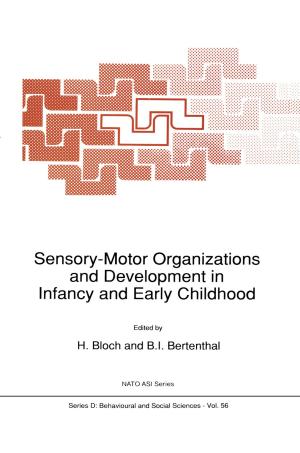Protein Function Prediction for Omics Era
Nonfiction, Science & Nature, Science, Biological Sciences, Biochemistry, Physiology, Health & Well Being, Medical| Author: | ISBN: | 9789400708815 | |
| Publisher: | Springer Netherlands | Publication: | April 19, 2011 |
| Imprint: | Springer | Language: | English |
| Author: | |
| ISBN: | 9789400708815 |
| Publisher: | Springer Netherlands |
| Publication: | April 19, 2011 |
| Imprint: | Springer |
| Language: | English |
Gene function annotation has been a central question in molecular biology. The importance of computational function prediction is increasing because more and more large scale biological data, including genome sequences, protein structures, protein-protein interaction data, microarray expression data, and mass spectrometry data, are awaiting biological interpretation. Traditionally when a genome is sequenced, function annotation of genes is done by homology search methods, such as BLAST or FASTA. However, since these methods are developed before the genomics era, conventional use of them is not necessarily most suitable for analyzing a large scale data. Therefore we observe emerging development of computational gene function prediction methods, which are targeted to analyze large scale data, and also those which use such omics data as additional source of function prediction. In this book, we overview this emerging exciting field. The authors have been selected from 1) those who develop novel purely computational methods 2) those who develop function prediction methods which use omics data 3) those who maintain and update data base of function annotation of particular model organisms (E. coli), which are frequently referred
Gene function annotation has been a central question in molecular biology. The importance of computational function prediction is increasing because more and more large scale biological data, including genome sequences, protein structures, protein-protein interaction data, microarray expression data, and mass spectrometry data, are awaiting biological interpretation. Traditionally when a genome is sequenced, function annotation of genes is done by homology search methods, such as BLAST or FASTA. However, since these methods are developed before the genomics era, conventional use of them is not necessarily most suitable for analyzing a large scale data. Therefore we observe emerging development of computational gene function prediction methods, which are targeted to analyze large scale data, and also those which use such omics data as additional source of function prediction. In this book, we overview this emerging exciting field. The authors have been selected from 1) those who develop novel purely computational methods 2) those who develop function prediction methods which use omics data 3) those who maintain and update data base of function annotation of particular model organisms (E. coli), which are frequently referred















